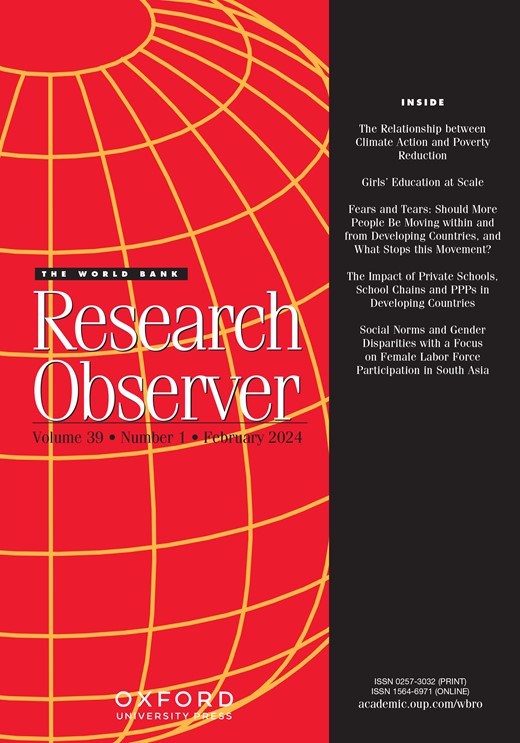艾滋病毒检测:原则和做法
IF 3.3
1区 经济学
Q1 DEVELOPMENT STUDIES
引用次数: 24
摘要
检测是减缓非洲和其他地区人类免疫缺陷病毒(HIV)流行的潜在重要干预措施。非洲一些国家已经实现了高水平的检测,但大多数国家没有。成本、价格和保密问题限制了检测的扩展。然而,在检测项目的设计上,似乎有可能存在一些选择,这些选择将以有价值的方式扩大了解自己艾滋病毒状况的人数。本文章由计算机程序翻译,如有差异,请以英文原文为准。
HIV Testing: Principles and Practice
Testing is a potentially important intervention to slow the Human Immunodeficiency Virus (HIV) epidemic in Africa and elsewhere. Some countries in Africa have achieved high levels of testing but most have not. Cost, price, and questions of confidentiality have limited the expansion of testing. It looks possible, however, that there are choices as to the design of testing programs that would expand the number of people who could know their HIV status in ways that would be worthwhile.
求助全文
通过发布文献求助,成功后即可免费获取论文全文。
去求助
来源期刊

World Bank Research Observer
Multiple-
CiteScore
12.60
自引率
1.20%
发文量
8
期刊介绍:
The World Bank Journals, including the Research Observer, boast the largest circulation among economics titles. The Research Observer is distributed freely to over 9,100 subscribers in non-OECD countries. Geared towards informing nonspecialist readers about research within and outside the Bank, it covers areas of economics relevant for development policy. Intended for policymakers, project officers, journalists, and educators, its surveys and overviews require only minimal background in economic analysis. Articles are not sent to referees but are assessed and approved by the Editorial Board, including distinguished economists from outside the Bank. The Observer has around 1,500 subscribers in OECD countries and nearly 10,000 subscribers in developing countries.
 求助内容:
求助内容: 应助结果提醒方式:
应助结果提醒方式:


